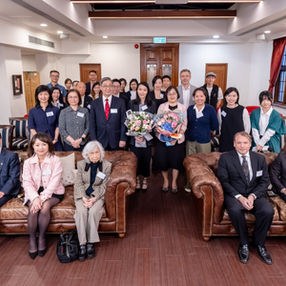HKU-BNU Catastrophe Management Initiative
- Dec 11, 2008
- 2 min read
Dec 2008
It has been eight months since the catastrophic Sichuan earthquake, but for many, just a glance at the figures still proves heartbreaking.
Close to 70,000 dead
Over 18,000 missing
More than 370,000 injured
15,000,000 people needing resettlement
Since the catastrophic earthquake, HKU community has been engaged not only in raising funds for emergency relief, but also involved in various volunteering tasks in which the University possesses expertise.
Synergising the strengths of the two universities, HKU and Beijing Normal University, the Catastrophe Management Initiative is a holistic and integrated project incorporating activities in Hong Kong and in the Mainland that are designed to help address all aspects of catastrophe management.
Over 100 government officials, academic, members of non-governmental organisations and researchers from the Chinese mainland participated in the “Global Dialogue on Wenchuan Earthquake Response: Challenges and Governance”, meeting with peers and experts from Hong Kong, the international arena and the United Nations to share the lessons learned in the past six months and to discuss further post-catastrophe challenges, based on other Mainland and overseas experiences.
The “Global Dialogue”, together with training workshops for about 80 frontline leaders of the quake-affected arrears, as made possible by a generous support from Hang Seng Bank.
It may be possible that the quake-affected area rebuild infrastructure within five years, but psychological reconstruction may take 10, 20 or even 30 years as Professor Cecilia Chan, Si Yuen Professor in Health and Social Work and Director of Centre on Behavioural Health, HKU, said.
Lacking in management training, numerous frontline officials – many of whom are quake survivors themselves and / or still struggling with personal bereavements – are at a loss as to what they can do.



Internal Seed Funding
With some donated funding from the community, the University has set up an Internal Seed Funding exercise to support academic colleagues who are keen to conduct projects related to research and education in catastrophes. The seed funding is in line with the belief that universities, as knowledge hubs, should contribute our expertise to the long-term knowledge-based catastrophe management worldwide. Some strategic areas are identified to be developed:
Catastrophe Health Care
Emergency Engineering
Capacity Building and Psychosocial Care
Social Service Management and Research
News coverage:







